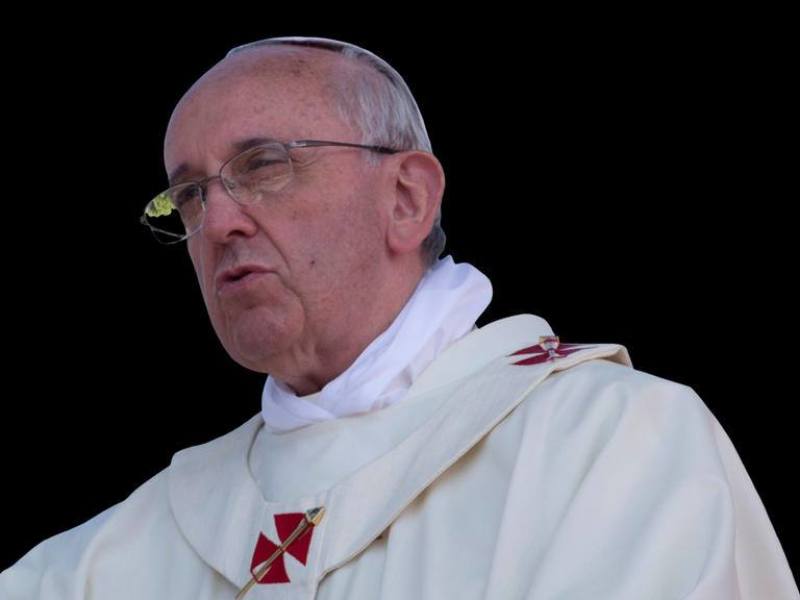
The head of the Catholic Church kept mum on the issue of Uyghur genocide in his Easter message that highlighted hope in the midst of troubling times, a report says.
On Sunday, Pope Francis delivered his Urbi et Orbi message inside St. Peter's Basilica for the second year in a row due to COVID-19 safety measures. Following the Easter Sunday Mass at the Altar of the Chair, which was attended by a small congregation, the Pope went on to share his Easter message, which spoke of the hardships of the pandemic and the global unrest.
However, Pope Francis not once mentioned China's Uyghur genocide, a global issue that has raised concern amongst global superpowers.
In this year's Easter message, Pope Francis did not miss out on the opportunity to call out the conflict and violence in countries such as Syria, Yemen, Iraq, Lebanon, Jodoan, Nigeria, Ukraine, Israel, Palestine, and more. However, as Breitbart pointed out, the pontiff did not speak out on China's Uyghur genocide, which has become increasingly clear thanks to the well documented evidence gathered by researchers.
Pope Francis called out Yemen's civil war and expressed his support for "the young people of Myanmar committed to supporting democracy," but failed to expose the human rights violations of China against the Muslim minorities in the Xinjiang province. These Muslim minorities have fallen victim to communist China's "re-education" programs which involve torture, sterilization, forced abortions, genetic testing, and other abuses.
Vatican watchers have observed that Pope Francis' refusal to negatively speak out against China's Uyghur genocide stems from the fact that he is still hopeful about establishing diplomatic relations with the Asian superpower.
Moreover, the Vatican had signed an accord with the Chinese Communist Party (CCP) back in September 2018, in which only bishops who were approved by the CCP can be appointed and vetoed by the Holy See. The agreement was renewed for another two years in October 2020.
However, Pope Francis did once subtly speak out on China's Uyghur genocide, but it was met with criticism from the sensitive CCP authorities.
In November 2020, the New York Times reported that Pope Francis' book "Let Us Dream: The Path to a Better Future," he commented on the "the poor Uyghurs" who he recognized as one of the many "persecuted peoples" in the world. Chinese Foreign Ministry Zhao Lijian immediately responded, saying that Pope Francis' very own words had "no factual basis" and continued to insist that the "Chinese government has always protected the legal rights of ethnic minorities equally" -a common rhetoric to hide its persecution of people of faith.
In July of 2020, Foreign Affairs' Benedict Rogers wrote that "One country-and one country alone-is noticeable by its absence in [the Pope's] prayers and statements: China." Rogers called out both the Pope and the Archbishop of Canterbury, Justin Welby for refraining from condemning China's Uyghur genocide, writing that these Christian leaders need to "signal clearly that they believe in the teachings of their faith-of human dignity, freedom, and justice-which matter more than any shady deals with brutal regimes."
After all, Rogers argued, "Dietrich Bonhoeffer was right when he said: 'Silence in the face of evil is itself evil. Not to speak is to speak. Not to act is to act.'"























